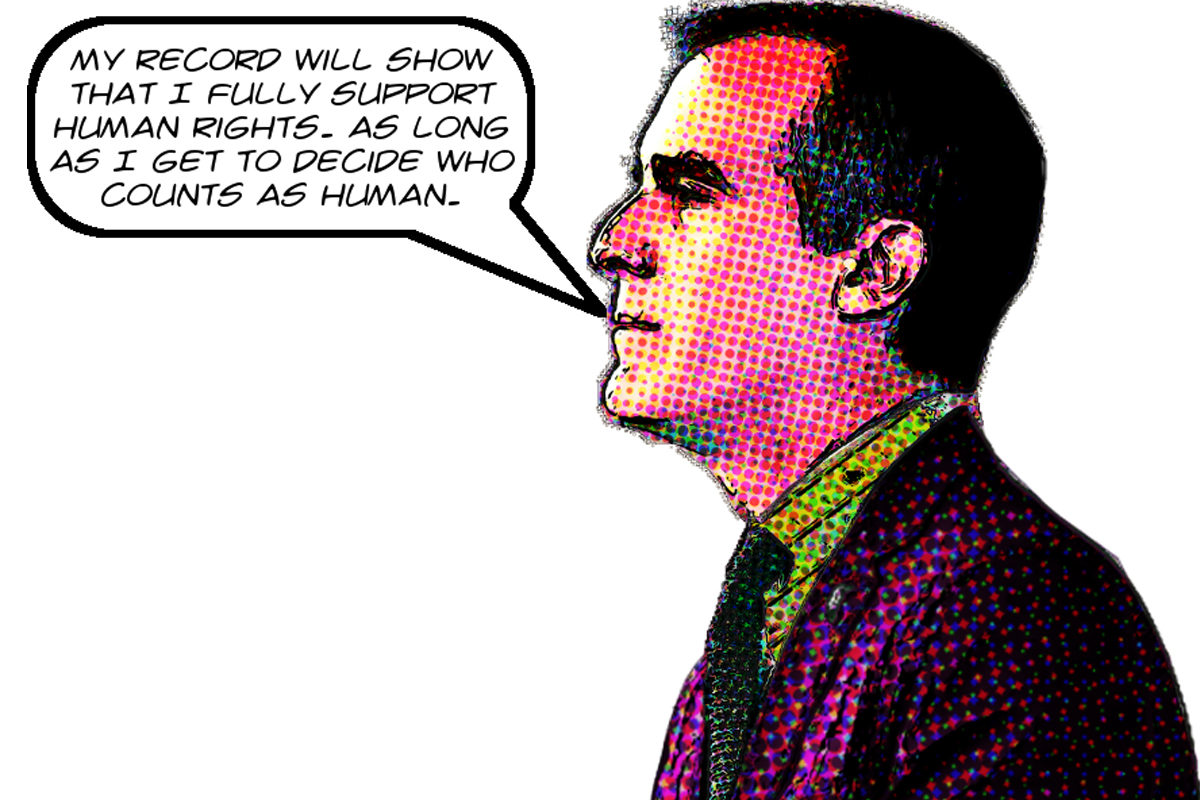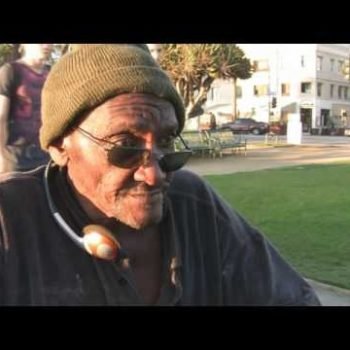To his followers, he’s known as Michael Kohlhaas. But his real name is actually Adrian Riskin, a fact that sometimes gets overlooked when his work is quoted (guilty as charged).
Most city officials probably loathe him, while organizers and journalists loudly applaud his work. Riskin has uncovered thousands of pages of documents from the City of Los Angeles through CPRA requests, which allows the public to inspect records by request, unless prohibited by law.
The namesake, Michael Kohlhaas, originates from a 19th century German novella by Heinrich Von Kleiss. It’s about a 16th century horse dealer named Hans Kohlhaas. Kohlhaas runs into trouble with nobleman Junker Wenzel von Tronka when he tries to cross state lines without a passport. As a result, two of his prized horses are seized. Kohlhaas spends the rest of the novel seeking justice.
Riskin declines to elaborate on why he named his blog after Von Kleiss’s protagonist but the parallels are obvious. When Kohlhaas stands up to authority, he uncovers a lot of corruption and discovers that the system is rigged against him in favor of the wealthy and the noble.
A Modern Day Michael Kohlhaas
MichaelKohlhass.org started in 2014 as a way to monitor Hollywood business improvement districts, known as BIDs. Since launching in 2014, the site has quickly expanded its coverage to include all facets of city politics including homelessness.
“I started looking at BIDs in 2014, and immediately realized that the most important part of the issue was the intersection between BID power and the sheer weakness of their homeless targets.”
By day, Riskin is actually a mathematician that teaches at a local college in L.A. County.
“The blog and activism aren’t my real job,” Riskin tells Invisible People over one of his main channels of sharing information, Twitter.
Riskin’s work has led to several big finds, including a 2017 discovery that downtown BIDs were coordinating the lobbying effort against the Skid Row Neighborhood Council formation. He also uncovered the alarming number of homeless people arrested by the Hollywood Entertainment District BID. Riskin claims this likely led to a 90% decrease in arrests.
This year, he discovered that Mike Bonin’s former field deputy, Taylor Bazley, was complicit in placing anti-homeless planters around Venice and then publicly lied about it.
Most recently Riskin got his hands on the daily and weekly sanitation cleaning schedules after three years of trying to obtain the records.
In 2016, Riskin filed a CPRA request to obtain the schedules. The city agreed to release them but not in advance of sanitation sweeps, Riskin said.
“I badgered them and finally, I got one the afternoon before the sweeps. I went and filmed the sweep, and that was the last time for years that they gave them to me in advance.”
Riskin shelved the project until earlier this year when he became familiar with the work of K-Town For All and Street Watch L.A., two advocacy groups that monitor sanitation sweeps. “I remembered how important advance knowledge could be.”
In the past, organizers and homeless people have struggled to keep up with the relentless sanitation cycle that leads to homeless people being criminalized and their property being destroyed, pushing people further into homelessness. Paper notices are supposed to go up near encampments 72 hours before sweeps. However, homeless residents and advocates have long claimed that they’re often posted less than 72 hours in advance. In some cases, they are not posted at all.
Additionally, rapid response cleans can happen at any time without prior notice given. Having access to the addresses and times of confirmed sanitation sweeps keeps homeless people informed.
Riskin eventually took the issue up with the City Attorney office.
After going back and forth, they agreed to relinquish the schedules on a regular basis.
But that wasn’t the end of it. It took Riskin showing up in person every morning for several weeks to get them to eventually start emailing the schedules to him.
“There’s nothing in the CPRA that requires an agency to email a copy of a record, let alone to email it on demand. However, the law explicitly does require agencies to produce records on demand to people who are physically present in their office.”
Now Riskin posts the schedules on his Twitter page as he receives them.
“Be stubborn,” Riskin advised.
At the end of the day, Riskin said the law is on your side when inquiring about public records. While the city may use every tactic available to delay or deny requests, Riskin advises other advocates to remain persistent.
“Public officials rely on people getting discouraged, tired, busy, worn down,” Riskin said.
Access to public records is one of the most fundamental rights guaranteed by the constitution of California. “It’s in the same section as the rights to freedom of speech, of religion, and the right not to be enslaved. Without access to public records, it is very difficult to enforce all the other rights.” Riskin said.
“Keep your mind and your eyes open,” Riskin added.
When he started requesting public records, Riskin thought he needed to know what he was looking for before asking. But overtime he learned there was a lot of valuable information out there he wasn’t aware of.
“I’ve found so many interesting things that I wasn’t looking for, that I had no idea even existed. I now realize it’s valuable to make requests based on interesting people or institutions and let the results suggest the questions rather than the other way around.”
By the end of Von Kleiss’s story, Kohlhaas finally achieves justice. After a successful lawsuit, Junker Wenzel Von Tronka is condemned and sentenced to two years imprisonment. All of Kohlhaas’s seized possessions are returned. They even reimburse him for medical costs. But the victory doesn’t come without loss. His wife is killed in the process and in the end Kohlhaas himself is sentenced to death.
In the case of Adrian Riskin, his work also comes with a price. Riskin has endured his fair share of “unhinged internet abuse,” as he puts it. Others have organized unsuccessful attempts to complain about his writing to his employer. But Riskin keeps pushing forward.
“I always expect something big coming soon, and occasionally I’m right,” Riskin concluded.













